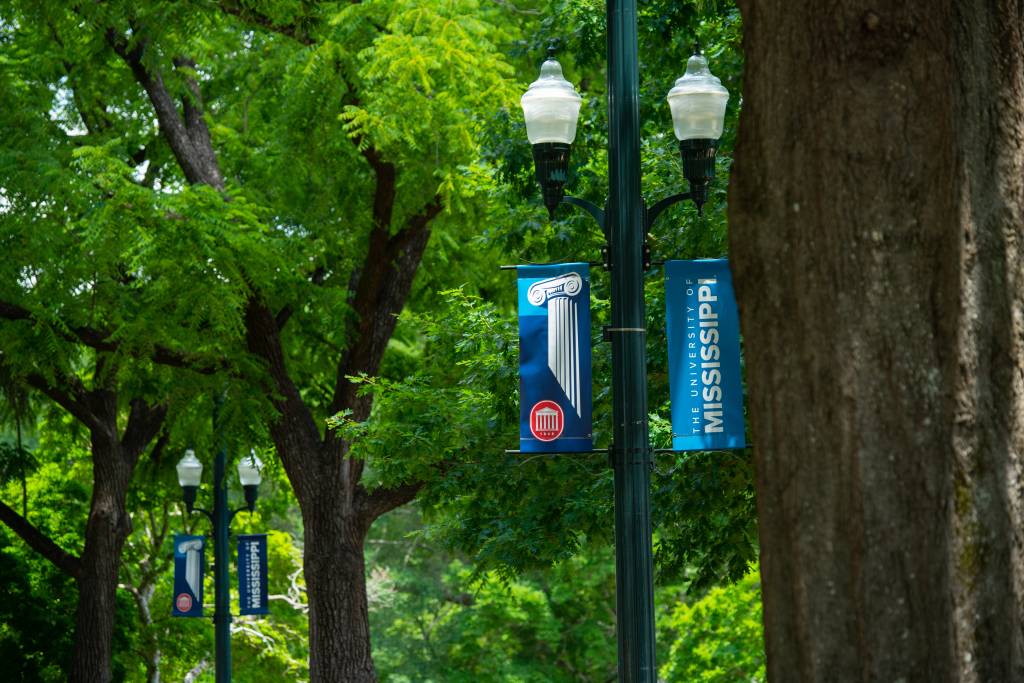The emergence of the COVID-19 pandemic this spring resulted in the transition of classes to online, remote or other alternative formats in a week’s time by University of Mississippi faculty and students.

As the university prepares to welcome students back to campus this fall, faculty are relying on a resilient coursework model that creates flexibility for students, yet is focused on providing the high level of engagement and interaction they are used to with Ole Miss courses.
The university’s Keep Teaching team has designed a universitywide faculty learning community using a framework known as “resilient pedagogy.”
“With resilient pedagogy, we’re focusing our efforts on identifying the activities and interactions that support meaningful learning and finding ways to make these work, regardless of where the learning takes place,” said Joshua Eyler, director of faculty development and director of the Thinkforward Quality Enhancement Plan. “We are laser-focused on student engagement from the very beginning.”
Chairs nominated up to two faculty leaders from their departments to work with the team on the learning community during the weeks of July 6 and July 13. Those faculty members will then develop versions of the same learning community for colleagues in their departments.
“Resilient pedagogy is a course design strategy that helps make classes, assignments and assessments as resistant to disruption as possible,” Eyler said. “The way to think about this is regardless of which modality you’re teaching in – online, in-person or blended – you’re designing one time and one time only.”
For example, if a professor is teaching a hybrid course, all students will do the one activity designed. The instructor may ask discussion questions in class, but he would ask those same discussion questions again if teaching synchronously on Zoom and ask those same questions, but in a different environment, if using asynchronous methods.
“That way, if the campus has to scale back on-campus activities, I have designed my course so it’s a much easier shift compared to the emergency remote teaching work we did when the pandemic hit,” Eyler said.
Eyler further explained that many situations exist that resilient pedagogy can address that don’t necessarily involve a campuswide move to the virtual environment.
“Individual students and faculty may get the virus and have to self-isolate,” he said. “They may suffer a major illness in the middle of a semester and can’t attend class anymore. Then there are conferences and snow days.
“So, the disruption that resilient pedagogy is designed to solve for is not limited to COVID.”
Eyler suggested a few practical steps that instructors can take to build more resilience into their courses:
- Find a way – Twitter, for example – that students can communicate with you and one other that won’t change, no matter what happens.
- Think about the activities they’re asking students to do and frame those activities in such a way that students are able to take advantage of available tools, regardless of the learning environment or where they are.
- Reconceptualize your approach. If you typically lecture for an hour, consider how you might build in an engagement aspect to break things up.
“UM and a few other universities across the country are really leading the way in adopting this kind of learning community,” Eyler said.
“While other institutions are offering isolated workshops or course design institutes that are designed and facilitated by centralized units, we are working directly with faculty to build the programming and to share effective approaches through direct collaborations with their departmental colleagues.”
Noel Wilkin, provost and executive vice chancellor for academic affairs, touted the work of the Keep Teaching team for striving to implement such a robust and resilient model.
“The beneficiaries of this work are the students,” Wilkin said. “By learning to develop their courses using resilient pedagogy, our faculty will help to ensure that the learning objectives of our courses are ‘disruption-proof’ and that a student will get a high-quality, well-developed education, regardless of the course format.”
The framework will help faculty as they navigate through the new reality of COVID-19 to “continue their valuable intellectual engagement with our students,” said Tony Ammeter, associate provost and director of outreach and continuing studies who led the provost’s academic continuity efforts to organize the Keep Teaching team.
“Of the resources available to faculty to help design their classes to be robust to any possible interruptions through the Keep Teaching Academic Community, the resilient pedagogy framework holds exceptional promise,” Ammeter said.
“When even partially implemented, it is a way to ‘future-proof’ courses so that students can engage meaningfully with the instructor, the course material and each other, regardless of their ability to attend – or teach – class in person or at a specific time.”
By Edwin Smith, UM Communications
Recent Comments